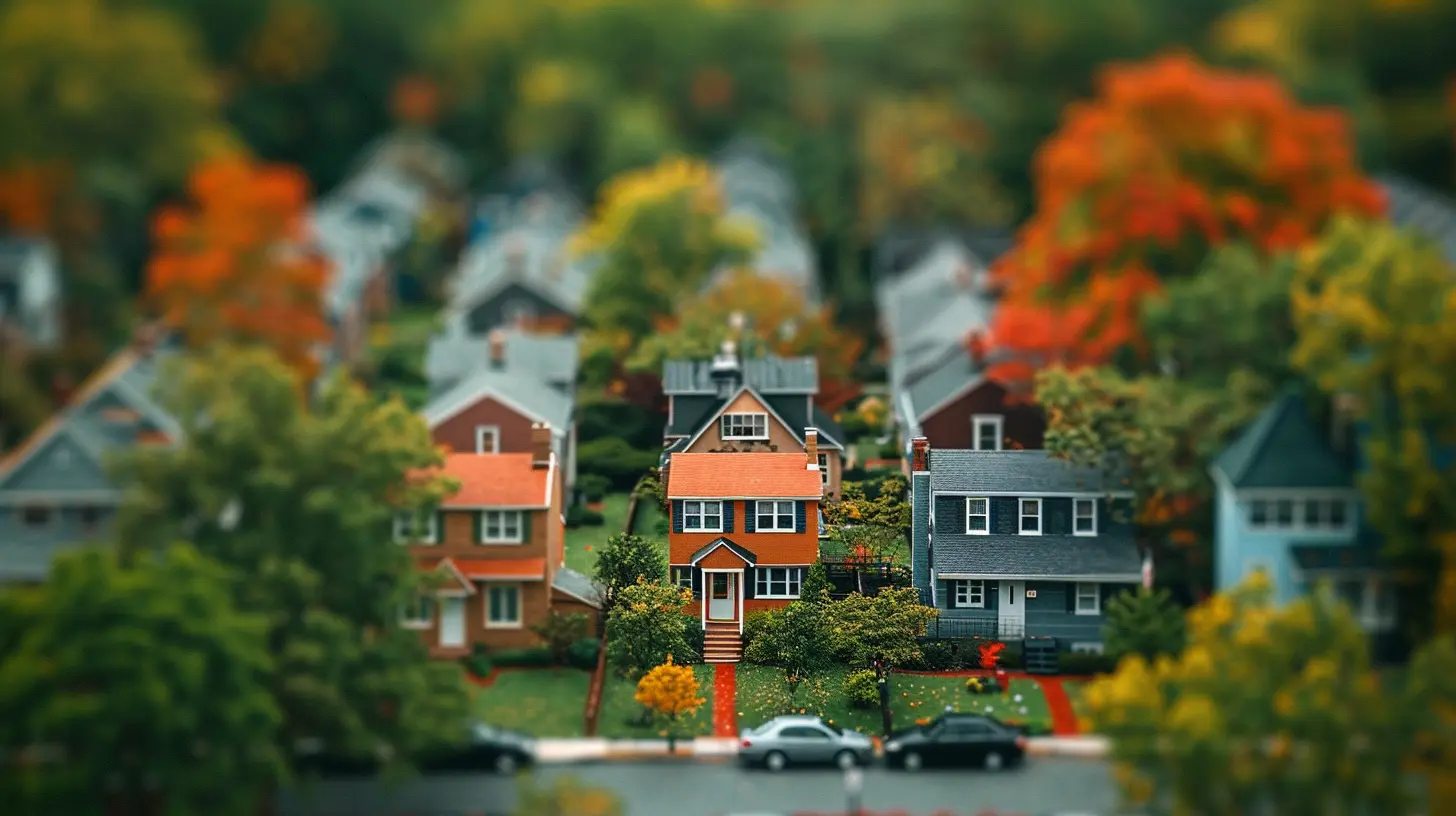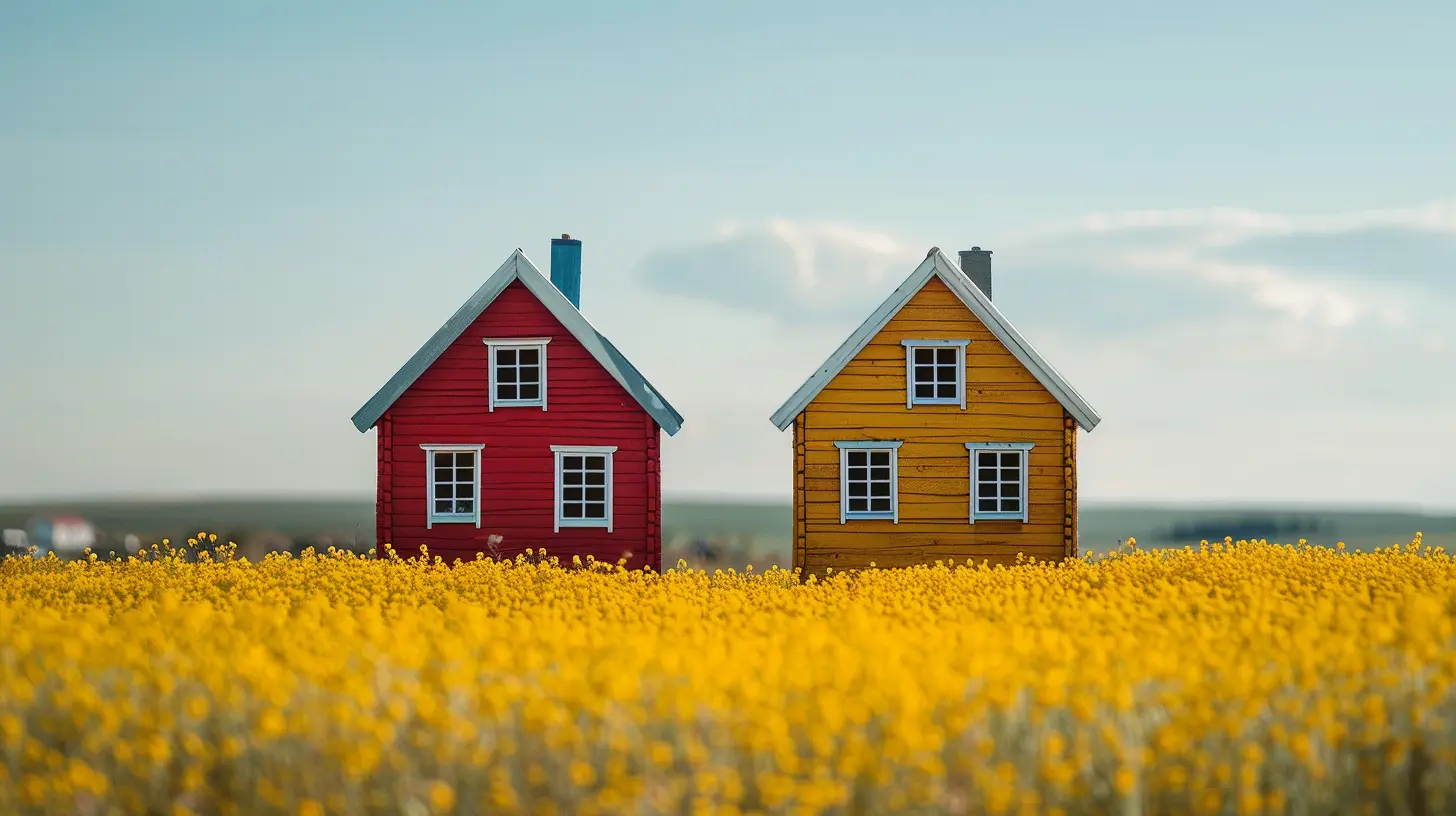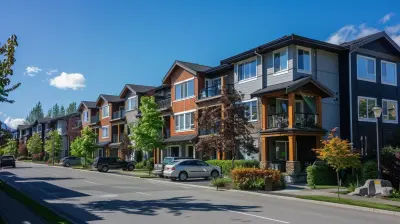21 April 2025
Real estate has always been a fascinating world, filled with opportunities and challenges. One of the most significant debates in this space is whether urban or rural markets offer better value. Both come with unique advantages and disadvantages, and choosing the right one depends on various factors like lifestyle, investment goals, and financial capabilities.
Let's break it down and see how these two markets compare—and what opportunities they hold for buyers, sellers, and investors alike.

Understanding Urban Real Estate Markets
Urban areas are the heartbeat of economic activity. Think of towering skyscrapers, bustling streets, and a never-ending wave of people moving about their daily lives. These areas typically include cities and metropolitan regions, offering a fast-paced environment with plenty of amenities.Pros of Urban Real Estate
1. High Demand and Appreciation
Urban properties tend to appreciate faster than their rural counterparts. Thanks to constant population growth and business development, there’s always a high demand for housing. Whether you're buying a condo, townhouse, or apartment, chances are the value will go up over time.2. Convenience and Amenities
One of the biggest perks of city living is convenience. From shopping malls and restaurants to hospitals and entertainment hubs, everything is within reach. Public transportation systems, like buses and trains, make commuting a breeze, reducing the need for personal vehicles.3. Job Opportunities and Business Growth
Cities attract large corporations, startups, and entrepreneurs. This creates a wealth of job opportunities, making urban real estate highly desirable, especially for young professionals looking to build their careers.4. Better Rental Income Potential
If you're an investor, urban properties are gold. Rental demand is always high, particularly in thriving cities. Downtown apartments or condos can fetch premium rental prices, providing a steady income stream.Cons of Urban Real Estate
1. Higher Costs
Let’s be honest—urban properties don't come cheap. The cost per square foot in a city can be significantly higher than in rural areas, making it difficult for first-time buyers to enter the market.2. Smaller Living Spaces
Space comes at a premium in urban settings. Apartments and condos are often compact, meaning you might have to compromise on square footage for the sake of location.3. Noise and Congestion
Living in the city means dealing with constant noise—traffic, construction, and the general hustle and bustle. If you’re someone who values peace and quiet, urban living might not be for you.
Understanding Rural Real Estate Markets
On the other side of the spectrum, rural real estate offers a different charm. Think rolling hills, vast open spaces, and a slower, more relaxed lifestyle. These properties are typically located outside city limits, offering affordability and an escape from the chaos of urban life.Pros of Rural Real Estate
1. Affordable Prices
Cost is one of the biggest advantages of rural real estate. You get more land and property for your money, making it an excellent option for those looking to escape high city prices.2. Larger Living Spaces
Ever dreamed of having a huge backyard or a farm? Rural properties provide generous spaces, allowing homeowners to enjoy outdoor activities, gardening, and even livestock farming.3. Peaceful Environment
If you’re tired of crowded streets and never-ending noise, rural living is a breath of fresh air—literally. The slower pace and close-to-nature lifestyle can have great mental and physical health benefits.4. Lower Cost of Living
Beyond just cheaper real estate, the overall cost of living in rural areas tends to be lower. Everything from groceries to utilities and property taxes is often more affordable than in urban centers.5. Unique Investment Opportunities
While urban areas may dominate the rental market, rural real estate isn’t without its investment perks. Think vacation rentals, farmland, or even large plots of land for future development. These can turn into profitable assets over time.Cons of Rural Real Estate
1. Limited Job Opportunities
Unlike cities, rural areas don’t have a booming job market. Employment opportunities can be scarce, meaning residents often have to commute long distances to work.2. Lack of Amenities
While rural life has its perks, it doesn’t come with the luxury of having everything at your doorstep. Fewer shopping centers, limited healthcare facilities, and reduced entertainment options can make rural living challenging for some.3. Slower Property Value Appreciation
Rural properties don’t appreciate as quickly as urban ones. While they may hold their value over time, they typically don’t see rapid growth in market prices.4. Limited Infrastructure and Services
Basic utilities like high-speed internet, public transportation, or emergency services may not be as efficiently available in rural regions, making life a bit more complicated for digital professionals or frequent travelers.
Investment Opportunities: Urban vs. Rural
When it comes to real estate investments, both urban and rural markets have lucrative opportunities, depending on your goals.Urban Investment Opportunities
- High-demand rental markets – Cities have a constant influx of renters, ensuring steady income for landlords.- Short-term rentals (Airbnb, VRBO, etc.) – Popular tourist destinations and business hubs make urban areas ideal for short-term rental properties.
- Commercial real estate – Office spaces, retail shops, and co-working spaces are always in demand.
Rural Investment Opportunities
- Vacation homes – Many people look for weekend getaways or retirement spots, making vacation rentals in scenic rural areas profitable.- Farmland investment – Purchasing agricultural land can provide long-term returns, especially as the demand for organic and farm-to-table food increases.
- Large estate development – Buying large plots of land for future residential or commercial development can be a wise financial move.

Which Market Is Right for You?
Choosing between urban and rural real estate ultimately depends on your personal and financial priorities. If you want fast appreciation, job opportunities, and a dynamic lifestyle, urban real estate makes sense. But if you're after affordability, space, and a peaceful retreat, rural real estate is worth considering.For investors, diversification might be the best approach—owning a mix of urban and rural properties can balance risk and reward. Remember, real estate isn't a one-size-fits-all industry. Whether you're a homebuyer or an investor, understanding the nuances of both markets can help you make the right decision.
No matter where you put your money, real estate continues to be one of the most reliable wealth-building assets. So, what’s it going to be—city lights or country roads?






Cadence Becker
Whether you’re dreaming of a chic downtown loft or a charming country cottage, remember: urban places have the hustle, while rural spots have the rustle. Choose your vibe wisely—your next home could be where the Wi-Fi is strong or the cows are plentiful!
April 26, 2025 at 12:21 PM